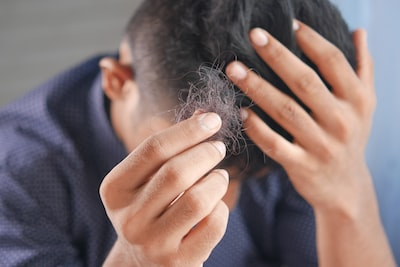Understanding Hair Loss and Effective Regrowth Strategies
Written on
Chapter 1: The Hair Loss Dilemma
Experiencing hair loss can be distressing for both men and women. Regardless of how long you've dealt with thinning hair or its severity, it's crucial to understand that there is no instant remedy or quick fix for this issue. Hair loss can stem from various factors, including genetics and hormonal imbalances.
Today, a range of treatments exists for hair loss, including minoxidil and Rogaine. While women can also face hair thinning, it is less common. Typically, excessive hair loss in women may be linked to health issues such as thyroid disorders or Hashimoto’s disease.
This condition is prevalent among individuals over 30, and its causes can include stress and illness. However, it is vital to recognize that hair loss can be attributed to reasons beyond aging or poor health, such as genetic predispositions and hormonal changes. If you're anxious about hair loss, consider these helpful tips for regrowth:
- Consult a Doctor Before Trying Remedies: Self-treating with home remedies can lead to adverse effects if not monitored by a healthcare professional.
- Adopt a Nutrient-Rich Diet: Incorporate iron-rich proteins like lean beef and chicken into your meals. Additionally, consume plenty of leafy greens like spinach, which are high in vitamin C, essential for maintaining healthy blood vessels.

Chapter 2: Unraveling the Causes of Hair Loss
The precise reasons behind hair loss remain elusive, causing concern for many individuals. While there are no quick solutions, there are effective methods to manage and potentially reverse this condition.
Factors contributing to hair loss include hormonal imbalances and genetic influences. Testosterone levels, regulated by the pituitary gland, play a significant role in hair growth. A drop in these hormone levels can lead to baldness, indicating a lack of testosterone needed for healthy hair development.
Moreover, lifestyle choices such as smoking can adversely affect overall health, diminishing blood circulation and energy levels, which may contribute to hair thinning.
Various treatments are available today, including topical solutions like minoxidil and Rogaine, as well as other methods such as laser therapy and vitamin supplements. However, it's essential to be aware of their potential side effects and limitations.
Women, while less frequently impacted, can also experience significant hair loss, often related to underlying health conditions.
If you're seeking ways to enhance hair regrowth, consider the following recommendations:
- Maintain a Balanced Diet: Ensure your diet is rich in essential vitamins and minerals that support the production of new cells, thereby promoting healthy hair growth.
There are multiple approaches to address hair loss, ranging from medical interventions to lifestyle modifications.
The first video titled "How to Help Regrow Your Hair (UPDATED VITAL INFO)" offers valuable insights and strategies for hair regrowth.
The second video, "The Science of Healthy Hair, Hair Loss and How to Regrow Hair | Huberman Lab Podcast," delves into the scientific aspects of hair health and effective regrowth techniques.
Conclusion: Seeking Professional Guidance
If you're struggling with hair loss, it's imperative to consult with a healthcare professional. They can provide a proper diagnosis and recommend the best treatment tailored to your needs. Additionally, consider visiting reputable salons for expert advice, or conduct thorough research online to make informed decisions about your treatment options before pursuing any medical procedures or medications.